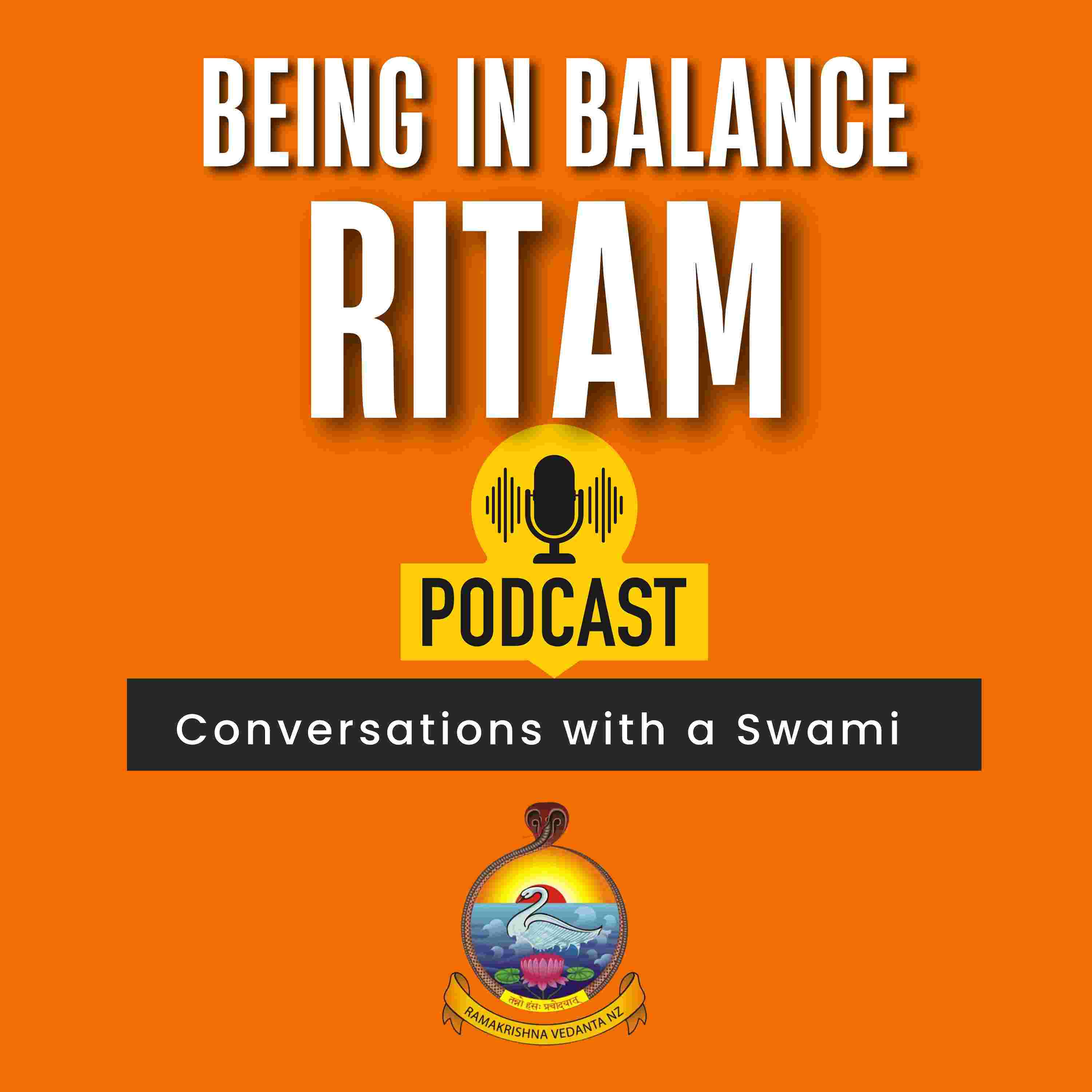
Mental wellbeing is an escalating global challenge having serious impact on the quality of life, productivity in workplace etc. Our approach to wellbeing fundamentally depends on our perspective of ourselves. Are we just human beings, not much different from animals or something more? Over thousands of years the Vedic spiritual seekers dived deep within themselves to explore the inner space and they repeatedly verified that we all, without exception, are in essence really spiritual beings having human experiences. Their discoveries form Vedanta philosophy - the 'science of human excellences" - which explain in detail and with much clarity how we have multidimensional physical, mental, emotional and ethical layers of personality covering the fundamental Pure and eternal spiritual being. Along with this, the Vedic seekers developed systematic Yoga techniques to purify our minds and "dis-cover" our true Self.
The Vedantic conception of ourselves and Yogic mind-management techniques offer an alternative approach to address the mental wellbeing challenges. Ramakrishna Vedanta Centre, Auckland has taken up a project to make available these Vedanta-Yoga teachings to empower individuals with the knowledge and skill-sets to better manage their minds, emotions, values etc. to live meaningful, peaceful and productive lives.
Ritam is the Vedic principle responsible for maintaining order, harmony and rhythm both in the macrocosm and the microcosm. Stress, tension, dis-ease etc arise when we lose this balance at different levels of our being and around us. We have limited capacity to influence change outside us but we can definitely integrate our mind to our inner Self to gain greater poise, balance and rhythm in life. Meditation is the art of turning the mind inwards and anchoring it to our eternal, omniscient, blissful and pure Self. The more we are integrated with our inner Self, the greater will be the influence we can cast around us. This is the spiritual way to freedom from the slavery to the eternal world and internal body, senses and mind.
Ritam - Being in Balance is our series of conversations with Swami Tadananda wherein we explore the Vedanta-Yoga teachings and practices to promote our wellbeing.
Mental wellbeing is an escalating global challenge having serious impact on the quality of life, productivity in workplace etc. Our approach to wellbeing fundamentally depends on our perspective of ourselves. Are we just human beings, not much different from animals or something more? Over thousands of years the Vedic spiritual seekers dived deep within themselves to explore the inner space and they repeatedly verified that we all, without exception, are in essence really spiritual beings having human experiences. Their discoveries form Vedanta philosophy - the 'science of human excellences" - which explain in detail and with much clarity how we have multidimensional physical, mental, emotional and ethical layers of personality covering the fundamental Pure and eternal spiritual being. Along with this, the Vedic seekers developed systematic Yoga techniques to purify our minds and "dis-cover" our true Self.
The Vedantic conception of ourselves and Yogic mind-management techniques offer an alternative approach to address the mental wellbeing challenges. Ramakrishna Vedanta Centre, Auckland has taken up a project to make available these Vedanta-Yoga teachings to empower individuals with the knowledge and skill-sets to better manage their minds, emotions, values etc. to live meaningful, peaceful and productive lives.
Ritam is the Vedic principle responsible for maintaining order, harmony and rhythm both in the macrocosm and the microcosm. Stress, tension, dis-ease etc arise when we lose this balance at different levels of our being and around us. We have limited capacity to influence change outside us but we can definitely integrate our mind to our inner Self to gain greater poise, balance and rhythm in life. Meditation is the art of turning the mind inwards and anchoring it to our eternal, omniscient, blissful and pure Self. The more we are integrated with our inner Self, the greater will be the influence we can cast around us. This is the spiritual way to freedom from the slavery to the eternal world and internal body, senses and mind.
Ritam - Being in Balance is our series of conversations with Swami Tadananda wherein we explore the Vedanta-Yoga teachings and practices to promote our wellbeing.

Swamiji provides profound insights into the rising trend of atheism in New Zealand. Discover the intriguing reasons behind why more people are identifying as atheists and how Vedanta’s perspective on God contrasts with traditional views.
Our senses often deceive us into believing that happiness lies in external pleasures. This episode uncovers the complex relationship between our sensory experiences and the pursuit of lasting joy. We delve into humanity's relentless quest for knowledge and the ways technology attempts to amplify our sensory capabilities, only to find that true fulfillment remains elusive. Swamiji breaks down these intricacies, highlighting our inherent drive for understanding and the limitations of seeking infinite happiness through finite means.
The path to spiritual awakening is paved with diverse practices and profound realizations. By examining the inward journey of nivritti and the outward pursuit of pravritti, Swamiji illustrates how even atheists can attain divine realization over many lifetimes. This conversation emphasizes the importance of recognizing the divine essence within ourselves and others, ultimately redefining what true religion means in the context of Vedanta. Join us as we explore how to connect with our true nature and practice personal spirituality beyond traditional religious frameworks. Don’t miss this enlightening discussion with Swami Tadananda that promises to redefine your understanding of spirituality.
www.vedanta.nz